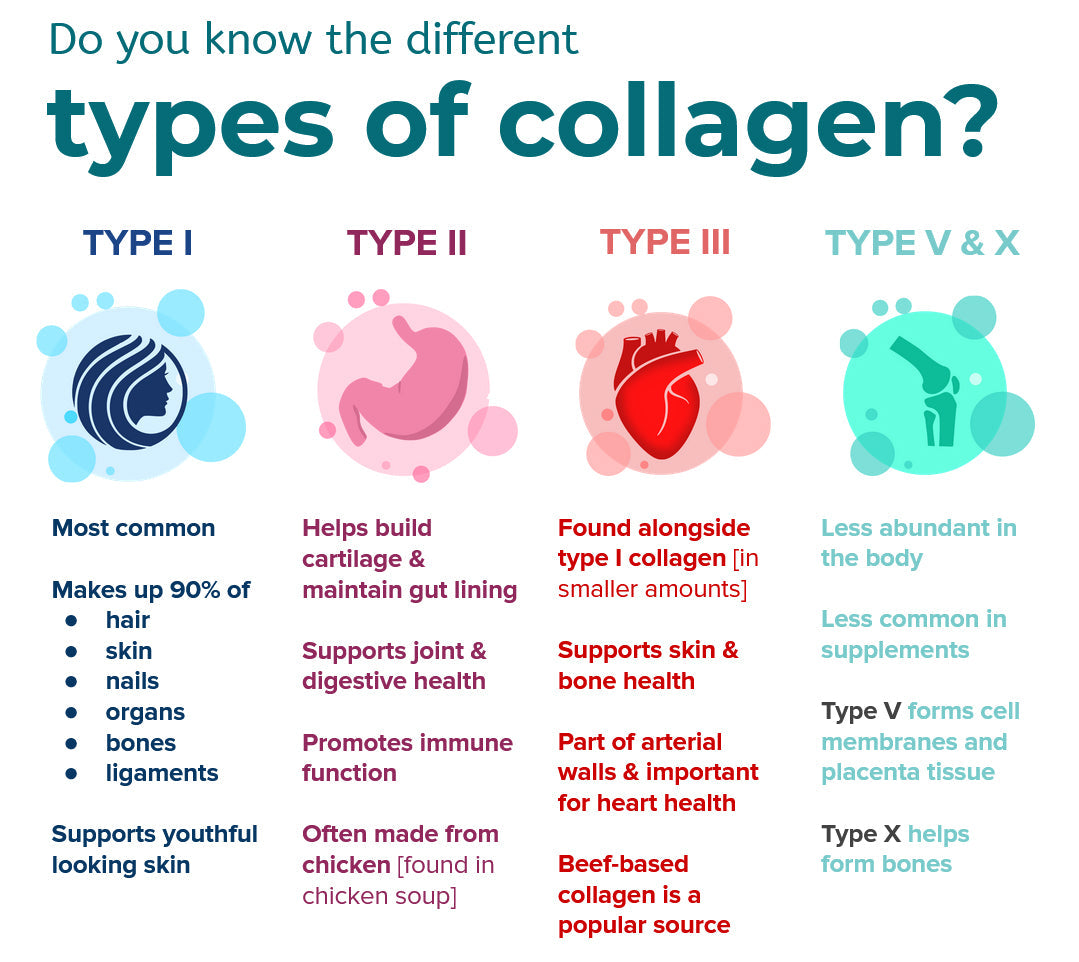
A Guide To Collagen Types
Share
Collagen has recently found popularity as a supplement to promote healthy skin, hair, and nails. With a shift toward a more holistic approach to health, beauty, and anti-aging, many individuals wishing for a more natural approach to the fountain of youth are turning to collagen.
But what is collagen, and does it have any health benefits? Research suggests that collagen may benefit the health of the skin, joints, and even the cardiovascular system.
Collagen is one of the most abundant proteins contributing to the function of the human body. It is estimated that collagen makes up 30% of all proteins in the body. Collagen’s main role is to provide structural integrity to the spaces in between the cells of connective tissues. It helps maintain the shape of tissues and cells by filling the spaces between cells. Collagen also supports the mechanical integrity of the body and plays a role in repairing damaged tissues.
Experts have identified 28 types of collagen, but the majority in your body consists of types I, II and III. These types vary in their composition and location in your body:
1. Type I collagen is the most abundant type of protein, making up approximately 90% of all the collagen in the body, and is usually found in the bones, connective tissues, skin, corneas of the eyes, and tendons. Type I collagen plays a prominent role in maintaining the integrity of skin, connective tissues, and bones. Type I collagen also plays a role in maintaining healthy hair and nails.
2. Type II collagen makes up over 90% of the collagen found in the cartilage of the joints. Type II collagen is mainly found in joints and intervertebral discs' articular or hyaline cartilage.
3. Type III collagen comprises 5-20% of the body's collagen content and predominately supports the structural integrity of hollow organs and tissues like the bowel, the uterus, and blood vessels. Type III collagen is also found in the skin but decreases in amount with aging. Less than 20% of the collagen in adult skin is estimated to be type III.
To sum it up, collagen is an amazing protein with various bodily functions, from supporting structural stability to strengthening skin and maintaining healthy joints. Studies show collagen supplementation may benefit supple skin and strong, flexible joints.
Visit our website to find out more about collagen supplements.
Source(s): iHerb, H&B, Healthline
